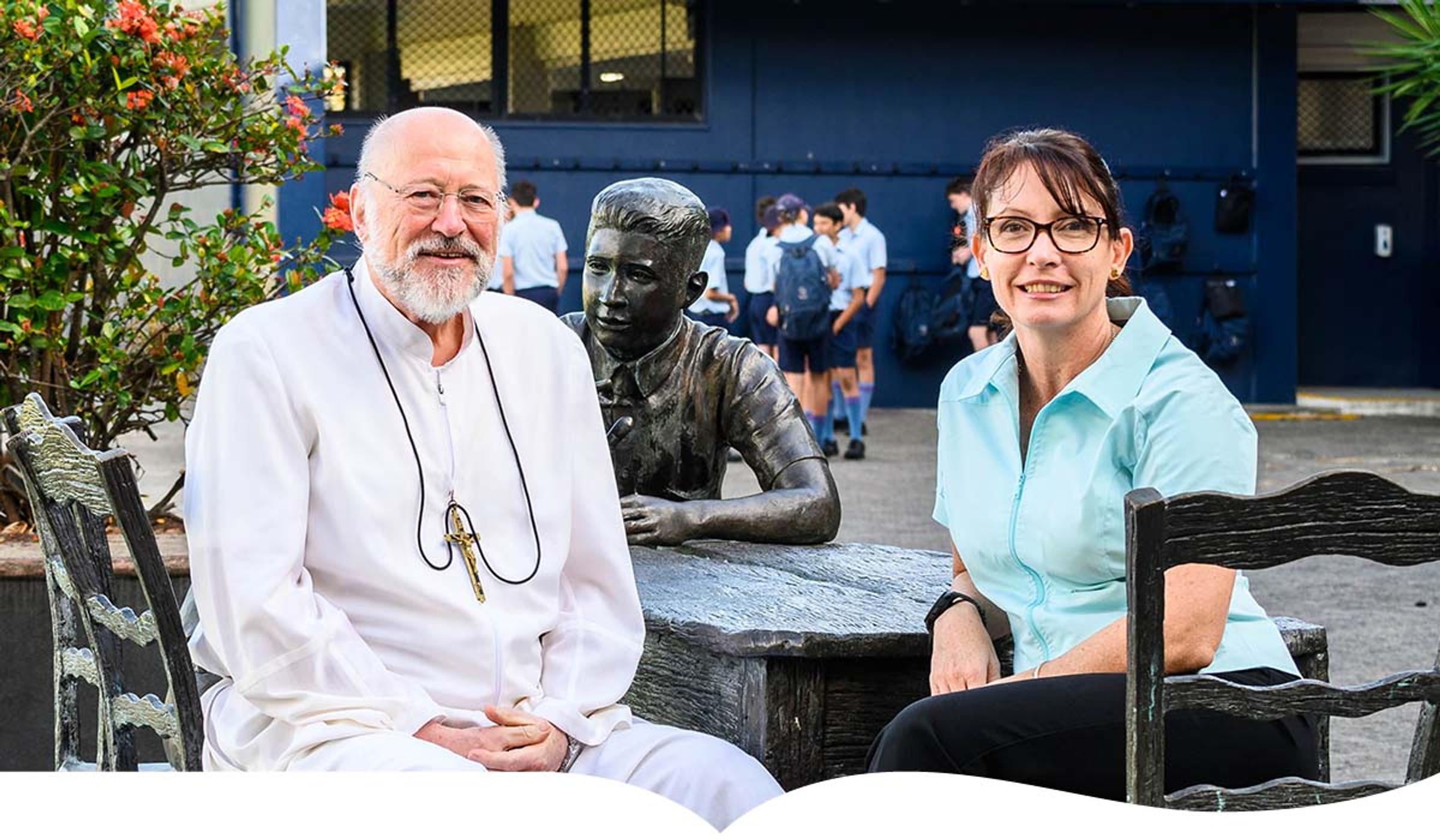COUNSELLING CONNECTIONS
News from College Counsellors Br Roger Vallance fms &
Mrs Marijke Keller

COUNSELLING CONNECTIONS
News from College Counsellors Br Roger Vallance fms &
Mrs Marijke Keller
Conversations With Your Children
Parents provide the emotional scaffolding: children build resilience underneath. But how can parents achieve this – and how can educators support families in their endeavours?
On the domestic front, there are myriad experiences that can challenge a child’s feelings of security and stress them out: moving house, changing schools, studying for a test, catching the train or bus by themselves for the first time (Raising Children Network, 2021) The trick is to get them to realise that not all stress is harmful – that navigating through manageable risks and setbacks, with the help of supportive adults, can build resilience and a sense of control, and help them to learn to cope with life’s difficulties (Center on the Developing Child at Harvard University, 2015; National Scientific Council on the Developing Child, 2010).
As an entry point to these conversations, consider talking through some of the following questions (Raising Children Network, 2021; National Scientific Council on the Developing Child, 2010; Beyond Blue, 2021):
Much of the advice around fostering children’s resilience may seem rather obvious – it can be easy to assume that most children will naturally develop the ability to cope with adversity. But resilience is not a given: without this fundamental life skill, a child can face negative outcomes like anxiety, depression and social difficulties, which can extend into adulthood. For educators, having an understanding of children’s brain development and paying attention to a child’s relationships and whole environment are critical steps towards supporting families, improving children’s resilience, and advancing a child’s short- and long-term physical and emotional wellbeing.
Q & A
Can you help children build independence?
Encouraging children to take age-appropriate, manageable risks helps them to develop self-confidence.
Do you praise the effort or the outcome?
Measuring success in endeavour rather than accolades teaches children that’s it’s OK to fail – and that "having a go" and completing a challenge is just as important as the result.
Do you try to solve every problem?
The temptation may be to leap in and fix things, but this doesn’t model a self-starting approach to problem solving.
Do you try to prevent every problem?
Allowing children to encounter uncomfortable situations, then find solutions, helps them to predict future problems.
Can you help your children identify and regulate strong emotions?
Empathy and compassion are powerful tools: showing children that you understand their emotions and difficulties makes it possible for them to "go easy" on themselves and realise that negative feelings don’t last forever.
Do you stop and acknowledge when things are going well?
Celebrating the good times makes it easier for children to respond when things aren’t going so well, and gives them a set of benchmark emotions to aim for on the rebound.